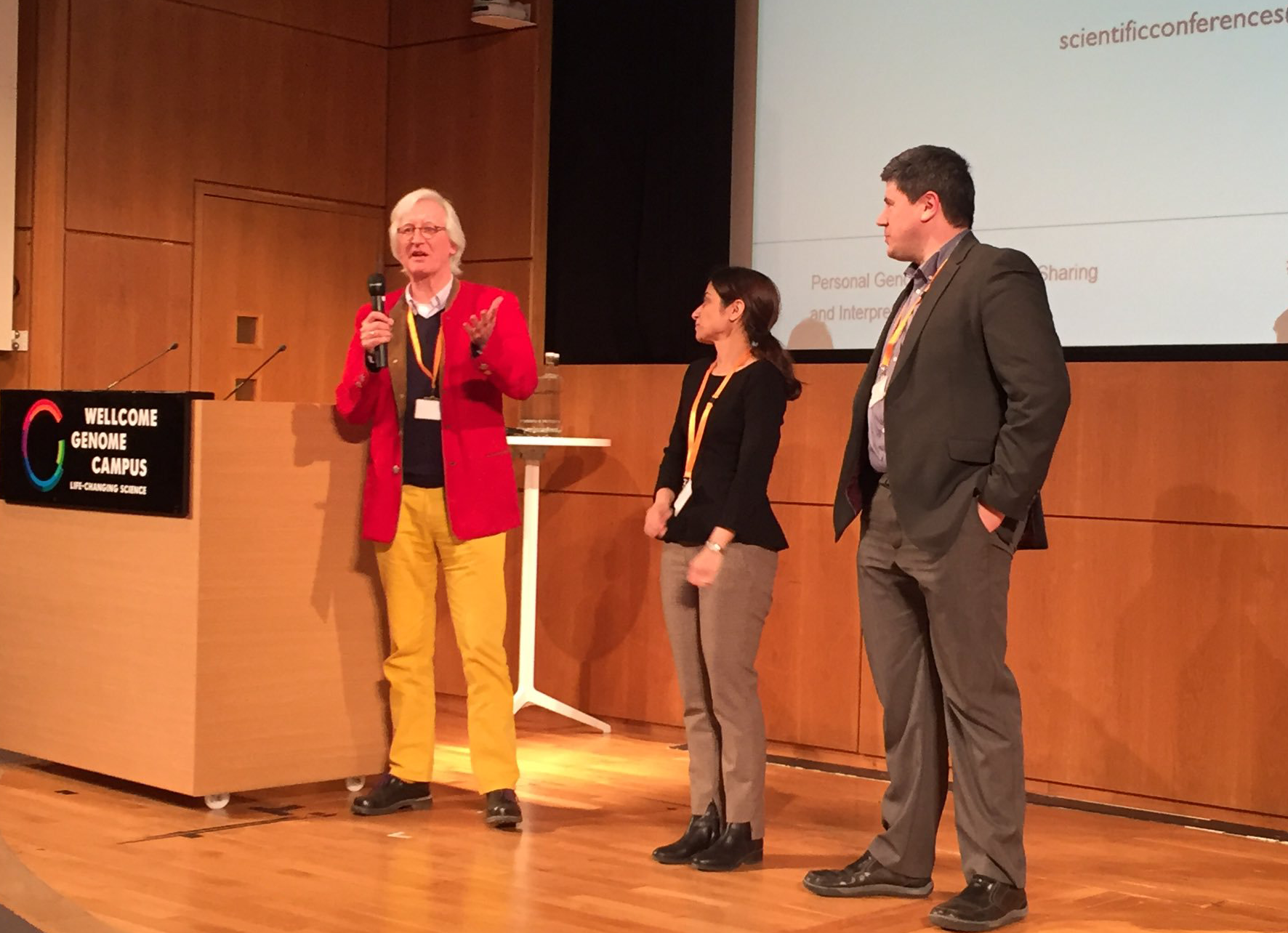
The importance of diversity in the world of personalised genomics
Personalised medicine is hailed as the future of healthcare, promising to influence patient lifestyle choices, raise disease prevention standards, enable better patient management of chronic conditions, and to transform public policy.
The dramatic drop in sequencing costs over the past few years means that personalised medicine is closer to becoming a reality. However, the promised benefits of personalised medicine are unlikely to benefit all while the genomic studies are predominantly limited to European populations.
With a lack of diverse communities taking part in such research, and therefore a lack of diverse data being submitted to accessible databases, it is fair to say that personalised genomics is a long way from becoming a global reality.
This was the main theme highlighted at a recent conference on Personal Genomes: Accessing, Sharing and Interpretation. This meeting, funded and organised as part of the Advanced Courses and Scientific Conferences (ACSC), was a first on personalised genomics for the programme based at the Wellcome Genome Campus in Hinxton, Cambridgeshire.
PersGen19 sets high standard for conference diversity with talks (already) from India, Mexico, Estonia, Canada and Korea.
Dr Cathyrn Lewis (Day One – Personal Genomes: Accessing, Sharing and Interpretation).
What are the barriers to global representation?
Discussions at the conference from leading experts placed emphasis on the chronic under-representation of so called ‘minority’ groups in scientific and medical trials in general.
The future for better diversity is data from understudied populations being added to global databases.
Stephan Beck, University College London, UK
One of the major barriers continues to be confusion over who owns the data held by institutions on developing countries. Many western research groups still perceive the study of under-resourced populations as a charitable, essentially philanthropic endeavour. It typically fails in two regards: the one-off study to tick the minority box will often fail to gain enough data to be truly representative of that population; the samples collected and data that emerges becomes the property of whichever institution or company has led the study, and is rarely returned to native scientists to facilitate local research initiatives.
The narrative is similar to the western view on cultural artefacts held in western museums on behalf of developing countries. The western perception is that they are helping to protect and preserve the history of that nation. However, the reality is that nation is unable to benefit from its own history when it’s being withheld from them. The same applies to their scientific data too
Lorenza Haddad, Codigo46, Mexico
This then translates into healthcare delivered within those societies. There is a distinct lack of effective drug targeting, or protocols that relate to diseases that affect specific populations. The data is never used to advance the exclusive healthcare problems faced by those diverse populations. Instead it is used by the western world to promote the ‘social responsibility’ rhetoric. The lack of infrastructure and a regulatory framework is another common issue in much of the developing world, which seriously undermines the application of already limited resources, and limits the number of patients who are willing to participate in genomics studies. This results in small sample sizes, and prevents progression within nations already struggling with the provision of effective healthcare.
How can the field overcome these barriers to diversity?
According to many at the conference, we need to tackle the silo problems around global data storage and access if we are going to overcome diversity issues within genomics and personal medicine studies.
“Adequate
Adequate healthcare is a basic human need, so it is a global issue requiring a global solution, and sharing data and data systems globally seems an obvious first step
Stephan Beck, University College London, UK
Stephan Beck discussing global healthcare and personalised genomics

But it is not only about accessibility. For the situation to really improve, and become more representative of global diversity, first we need an increase in data from diverse populations. The attitude towards research needs to change to be more inclusive and less pan-European. It is also essential for leading research funders and institutes to re-think their data sharing strategies, and adopt more inclusive initiatives to ensure that all data is returned first to the developing populations they belong to for their own advancement. Ultimately this will make participation more attractive.
An increase in funding, local training resources and local specialists are all key to strengthening the potential of open and engaged research taking place in underrepresented regions. An enhanced and informed infrastructure with the local population at the heart of the research impact could go a long way to promote trust, and therefore raise participation.
In order for precision medicine to be globally successful we need to ensure the field funds projects that look at diversity of sample or understudied populations. The field also needs to prioritise funding and training for more clinicians to be trained in genomics, as well as a large increase in genetic counsellors for developing countries
Anu Acharya, Mapmygenome, India
Gaining success through networks, understanding, and collaboration
The Personal Genomes: Accessing, Sharing and Interpretation conference welcomed over 130 delegates from 21 countries. Discussion and networking all played a pivotal part in bringing diverse communities together to share their different perspectives. Participants experienced a unique opportunity to share experiences, identify shared challenges and build new understanding and collaborations.
It is clear from this meeting that diversity is essential for everyone to benefit from advances in genomics and personalised medicine, but for it to be successful everyone in the field must work together, making conferences such as this all the more important for providing a platform for that unification to begin.
It’s obvious to me that Personalised Medicine can only be delivered through a multidisciplinary effort and the enthusiasm for that was very clear throughout the entire conference. We now need to keep the momentum going and conferences like this one play an essential role to achieve this.
Stephan Beck, University College London, UK
